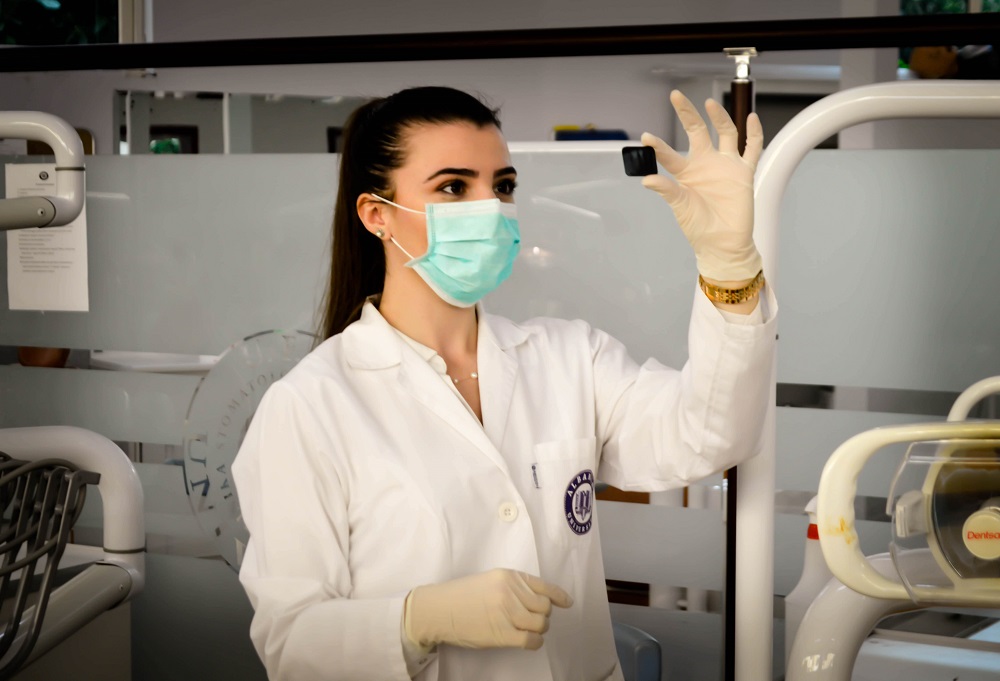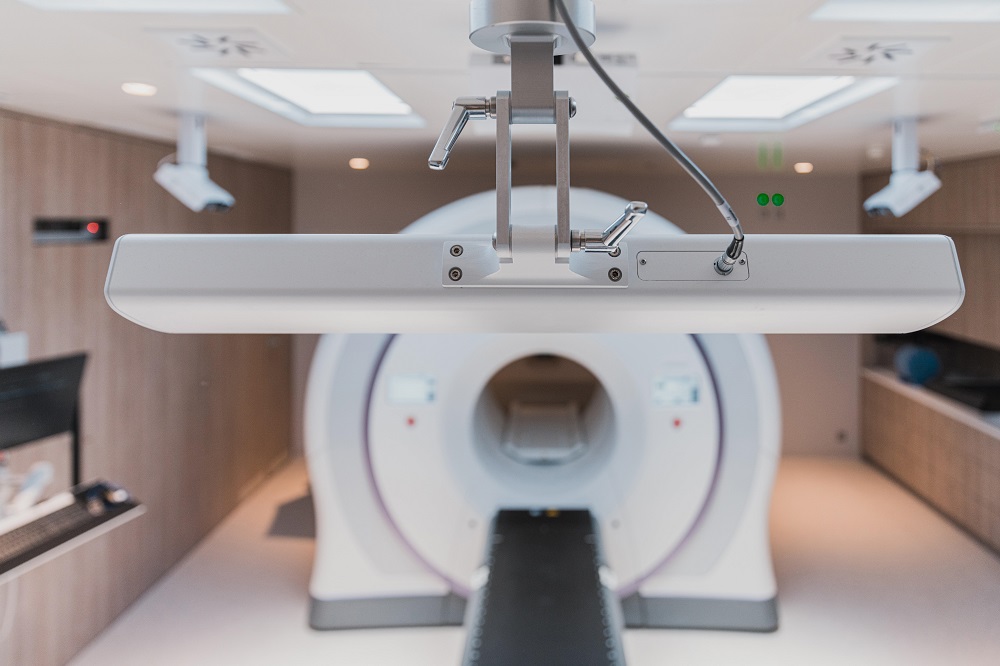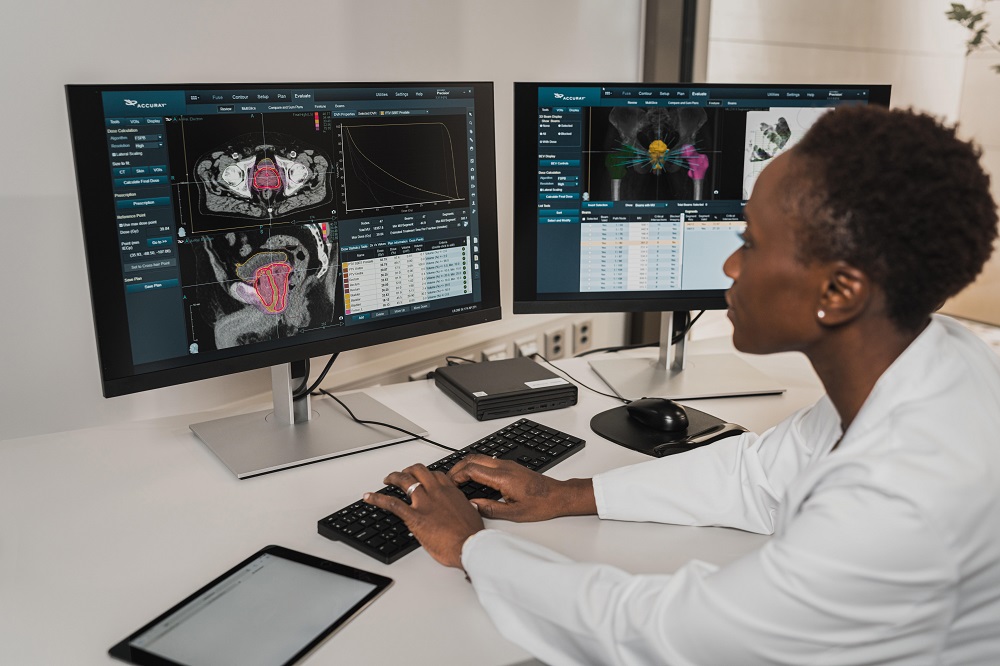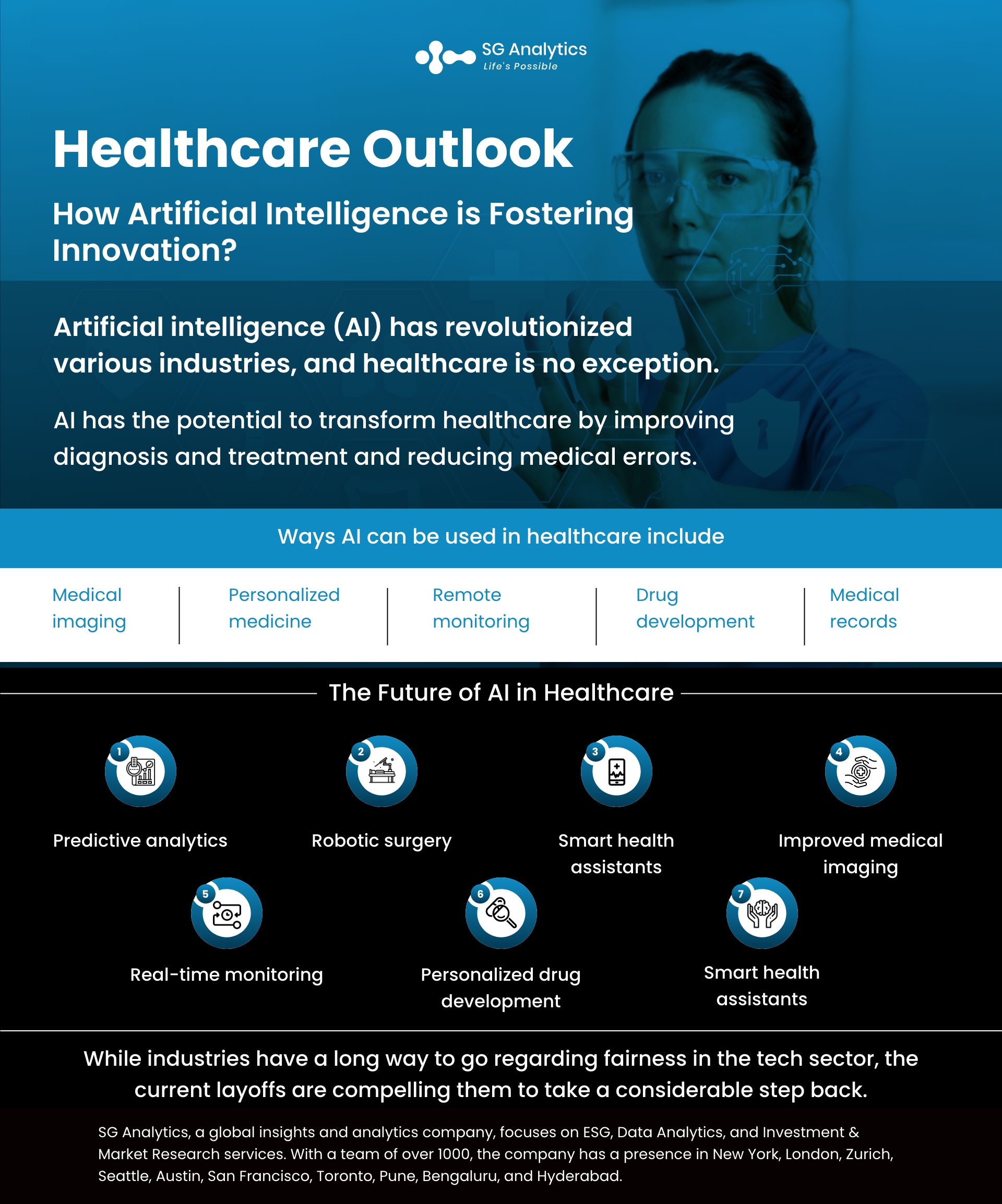First, let's understand what artificial intelligence is. Artificial intelligence refers to the ability of machines to perform tasks that would typically require human intelligence, such as learning, problem-solving, and decision-making. Machine learning, a subset of AI, involves training algorithms to recognize patterns and make predictions based on data.
Artificial intelligence (AI) has revolutionized various industries, and healthcare is no exception. The use of AI in healthcare has the potential to transform the way healthcare is delivered, making it more personalized, efficient, and effective. In this blog, we will discuss the impact of AI on healthcare and the various applications of AI in the field.
Ways AI can be used in Healthcare
AI has the potential to transform healthcare by improving diagnosis and treatment, reducing medical errors, and increasing efficiency. Here are some of the ways AI is being used in Healthcare:
Medical Imaging
Medical imaging is one of the areas where AI is being used extensively. Radiology is a branch of medicine that uses medical imaging to diagnose and treat diseases. AI algorithms can analyze medical images to identify anomalies, such as tumors or lesions, and help doctors make accurate diagnoses. AI can also help radiologists detect abnormalities in medical images that might be missed by the human eye, making diagnoses more accurate.
Personalized Medicine
AI can help personalize medicine by analyzing patient data to identify patterns and predict outcomes. By analyzing large amounts of data, AI can locate the most effective treatments for individual patients, considering their unique genetic makeup, medical history, and lifestyle factors.

Drug Development
AI is used to accelerate drug development by analyzing vast amounts of data, such as genomic and proteomic data, to identify potential drug targets. AI can also predict the efficacy and safety of new drugs, helping pharmaceutical companies develop drugs more quickly and cost-effectively.
Remote Monitoring
AI-powered wearables and other medical devices can monitor patients remotely, providing real-time data to healthcare professionals. This can help doctors identify potential health problems before they become serious, reducing the need for hospitalization and emergency care.
Medical Records
AI can help manage medical records more efficiently, reducing the likelihood of errors and improving the accuracy of diagnoses. AI algorithms can identify patterns and predict outcomes by analyzing patient data, helping doctors make better-informed decisions.
However, there are also some challenges associated with the use of AI in healthcare. One of the significant challenges is data privacy and security. Healthcare data is compassionate, and it is essential to protect patient data from cyber threats and unauthorized access. Another challenge is the potential for bias in AI algorithms. If AI algorithms are trained on partial data, they can produce biased results, leading to incorrect diagnoses and treatment plans.
AI has the potential to revolutionize healthcare by improving diagnosis and treatment, reducing medical errors, and increasing efficiency. While some challenges are associated with using AI in healthcare, the benefits far outweigh the risks. As the use of AI in healthcare continues to grow, we can expect to see significant improvements in the quality of care provided to patients.

Growth of AI in Healthcare
The use of artificial intelligence (AI) in healthcare is rapidly growing, as the benefits of AI in improving patient outcomes, reducing costs, and increasing efficiency are becoming increasingly apparent. In this blog, we will discuss the growth of AI in Healthcare and its prospects.
According to a recent report by Global Market Insights, the global AI in the healthcare market is expected to reach $13 billion by 2025, growing at a CAGR of over 41% from 2019 to 2025. The increasing adoption of electronic health records, the need for cost-effective healthcare services, and the growing availability of big data are some factors driving AI's growth in healthcare.
Medical imaging is one of the areas where AI has made significant strides in recent years. AI algorithms can analyze medical images, such as X-rays, CT scans, and MRI scans, and more accurately detect anomalies than human radiologists. For example, AI algorithms can identify cancerous tumors in mammograms with high accuracy, reducing the need for unnecessary biopsies.
AI is also used to personalize medicine by analyzing patient data to identify patterns and predict outcomes. This can help doctors develop personalized treatment plans for individual patients, considering their unique genetic makeup, medical history, and lifestyle factors. For example, AI can predict the likelihood of a patient developing complications from surgery, allowing doctors to take preventive measures.
Another area where AI is making an impact in drug development. AI algorithms can analyze vast amounts of data, such as genomic and proteomic data, to identify potential drug targets. AI can also predict the efficacy and safety of new drugs, helping pharmaceutical companies develop drugs more quickly and cost-effectively.

Remote monitoring is another area where AI is being used to improve patient outcomes. Wearables and other medical devices equipped with AI can monitor patients remotely, providing real-time data to healthcare professionals. This can help doctors identify potential health problems before they become serious, reducing the need for hospitalization and emergency care.
In the future, we can expect to see even more significant advances in AI in healthcare. For example, AI could be used to develop personalized health assistants, which could monitor patients' health status and provide customized recommendations for diet, exercise, and other lifestyle factors. AI could also be used to develop predictive models for disease outbreaks, helping to prevent the spread of infectious diseases.
The Future of AI in Healthcare
The future of AI in Healthcare is exciting and promising, with the potential to transform the way healthcare is delivered, making it more personalized, efficient, and effective. In this blog, we will discuss some of the potential future developments in AI in Healthcare.
Predictive Analytics
One of the most promising applications of AI in healthcare is predictive analytics. AI algorithms can analyze large amounts of patient data, including medical histories, genetic information, and lifestyle factors, to predict the likelihood of developing certain diseases or conditions. This information can be used to create personalized treatment plans and preventative measures, potentially reducing healthcare costs and improving patient outcomes.
Robotic Surgery
AI-powered robotic surgery is already being used in some hospitals, but it is still in its early stages. In the future, AI could play an even more significant role in surgical procedures, with robots able to perform complex surgeries with greater precision and accuracy than human surgeons.

Smart Health Assistants
AI-powered intelligent health assistants could become commonplace, providing patients with personalized health advice and reminders. These assistants could monitor vital signs, track medication adherence, and provide recommendations for diet and exercise, potentially reducing the need for hospital visits.
Improved Medical Imaging
AI algorithms are already being used to improve medical imaging, but there is still much room for improvement. In the future, AI could produce even more detailed and accurate images, potentially reducing the need for invasive procedures.
Real-Time Monitoring
Wearable technology and other medical devices equipped with AI could monitor patients in real-time, providing healthcare professionals with a continuous data stream. This could help doctors identify potential health problems before they become serious, reducing the need for hospitalization and emergency care.

Personalized Drug Development
AI algorithms could be used to identify personalized drug targets based on an individual's genetic makeup, potentially reducing drug development's need for trial and error.
Mental Health Diagnosis and Treatment
AI could play a significant role in diagnosing and treating mental health disorders. AI algorithms could analyze speech patterns, facial expressions, and other data to identify potential mental health problems, providing doctors with the information they need to develop personalized treatment plans.
The future of AI in healthcare is promising, with the potential to transform the way Healthcare is delivered. While some challenges are associated with using AI in Healthcare, such as data privacy and bias, the benefits far outweigh the risks. As technology continues to evolve, we can expect to see even more significant advances in AI in healthcare in the future.

Pros and Cons of AI in Healthcare
Artificial Intelligence (AI) has the potential to revolutionize healthcare by improving patient outcomes, reducing costs, and increasing efficiency. However, there are also some potential downsides to using AI in healthcare. In this blog, we will discuss the pros and cons of AI in healthcare.
Pros:
- Improved Diagnosis and Treatment: AI can analyze vast amounts of patient data, including medical histories, genetic information, and lifestyle factors, to develop more accurate diagnoses and personalized treatment plans. This can lead to improved patient outcomes and reduced healthcare costs.
- Increased Efficiency: AI can automate routine tasks, such as data entry and analysis, freeing healthcare professionals to focus on more complex tasks. This can increase efficiency and reduce healthcare costs.
- Better Patient Monitoring: AI can monitor patients in real time, providing healthcare professionals with a continuous data stream. This can help doctors identify potential health problems before they become serious, reducing the need for hospitalization and emergency care.
- Personalized Medicine: AI can analyze patient data to identify patterns and predict outcomes. This can help doctors develop customized treatment plans for individual patients, considering their unique genetic makeup, medical history, and lifestyle factors.

Cons:
- Data Privacy and Security: One of the biggest challenges associated with using AI in Healthcare is data privacy and security. Patient data is sensitive and must be protected from unauthorized access or use.
- Bias and Inequality: AI algorithms can be biased, resulting in unequal treatment for different patient populations. For example, AI may not work as well for specific racial or ethnic groups, resulting in unequal access to Healthcare.
- Reliance on Technology: The use of AI in healthcare requires a high level of technological sophistication. This can create a dependence on technology that can be difficult to maintain, potentially leading to problems if the technology fails.
- Lack of Human Interaction: The use of AI in healthcare can reduce the amount of human interaction between healthcare professionals and patients. This can result in losing empathy and personal connection, potentially reducing patient satisfaction.
The use of AI in Healthcare has both pros and cons. While AI can improve patient outcomes, reduce costs, and increase efficiency, there are also challenges associated with data privacy, bias, and the potential loss of human interaction. As technology continues to evolve, it is essential to carefully consider these pros and cons to ensure that the use of AI in healthcare benefits patients and society as a whole.
Also, Read - Gain Actionable Insights With SGAs Healthcare Analytics Consulting.
Conclusion
AI is poised to revolutionize Healthcare by improving patient outcomes, reducing costs, and increasing efficiency. As the technology continues to evolve, we can expect to see even more significant advances in AI in Healthcare in the future. While some challenges are associated with using AI in healthcare, such as data privacy and bias, the benefits far outweigh the risks.

The impact of artificial intelligence in healthcare has been significant and has the potential to revolutionize the industry. AI can analyze vast amounts of data quickly and accurately, which can help healthcare providers make better decisions and improve patient outcomes.
Getting started with SGA's healthcare analytics services
Healthcare analytics solutions represent a win-win for both hospitals and patients.
According to a California Association for Healthcare Quality (CAHQ) report, leveraging data and process automation to digitize records and automate and optimize administrative tasks can save the Healthcare Industry more than $13 billion.
In fact, by being able to devote more time to patients, healthcare professionals report higher work fulfillment and satisfaction.
In turn, patients feel more satisfied and cared for. Let's remember the enrichment in customer experience brought by the smoothness and efficiency of a digitally transformed organization.
That said, only some healthcare organizations can deploy them.
Every organization has unique needs. And nobody understands this better than SG Analytics. Data analytics services at SGA entail extensive research and resource planning to identify data pipelines and the bottlenecks that obstruct them.
We offer services that ensure that your data is collected, sorted, managed, and evaluated in a way that maximizes efficiency and value just for you. Unique goals demand unique solutions.









